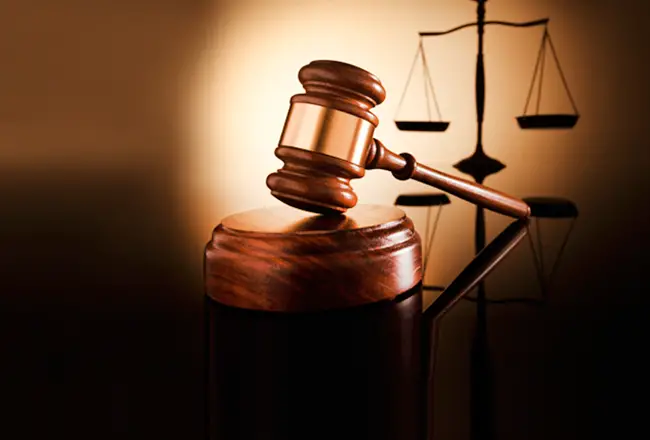Gifted basketball player Keith Thomas, whose aspirations to play in the NBA were dashed in a forged transcript scandal at Westchester Community College, has lost again.
 Westchester Supreme Court Justice William J. Giacomo reversed jury verdicts that had found Westchester County and the community college negligent for improperly supervising a head basketball coach who doctored transcripts of players who sought scholarships to major college basketball programs.
Westchester Supreme Court Justice William J. Giacomo reversed jury verdicts that had found Westchester County and the community college negligent for improperly supervising a head basketball coach who doctored transcripts of players who sought scholarships to major college basketball programs.
“There is no valid line of reasoning to support the jury”™s conclusion that the defendants”™ negligence was a substantial factor” in hurting Thomas”™ basketball career, Giacomo stated in a July 31 decision.
The Westchester Community College Vikings won the National Junior College District 3 championship in 2014, Thomas”™ last season, and he averaged 25 rebounds a game, making him the best junior college rebounder in the nation.
For talented junior college players, the primary path to the National Basketball Association is through a major college basketball program.
St. John”™s University in Queens was such a program, and it offered Thomas a scholarship for the 2014”“15 season. Six days before the first game, the transcript scandal was revealed.
WCC head coach Tyrone Mushatt had forged several players”™ transcripts to make it appear that they were eligible to transfer to four-year programs.
St. John”™s revoked Thomas”™ scholarship.
Mushatt eventually pleaded guilty to conspiracy and criminal possession of a forged instrument.
Thomas sued the county and the college”™s Faculty Student Association, which employs coaches, in 2015.
They were negligent in supervising Mushatt and retaining him as the coach, he alleged, because college officials had received an anonymous email in 2013 describing the scheme.
By not firing Mushatt, Thomas argued, he lost the St. John”™s scholarship and the opportunity for a lucrative NBA career.
On Feb. 6, 2020, the jury found that the county and the Faculty Student Association should have known of Mushatt”™s propensity for forging transcripts, based on the anonymous email, and their negligence had damaged Thomas. The jury found that Thomas himself was not negligent.
The second phase of the trial, to determine how much money Thomas should be awarded ”“ potentially millions of dollars ”“ was to begin in March but was postponed because of the Covid-19 crisis.
The college and the county filed motions to overturn the verdicts, arguing that Thomas had failed to prove negligence and that their actions, or inactions, had not harmed him.
Judge Giacomo agreed that the Faculty Students Association was not negligent. Donald W. Weigand, the dean of student affairs, had investigated the anonymous email and concluded that no one in the athletic department had the ability or clearance to change grades on official transcripts. Weigand was the only person responsible for the investigation, and he had not consulted with the Faculty Students Association.
But the jury validly concluded that the county was negligent, Giacomo found.
Even so, the judge ruled, the evidence did not support the conclusion that the county or the Faculty Students Association had substantially harmed Thomas.
The scholarship was contingent on satisfying National Collegiate Athletic Association eligibility requirements.
“Thomas, despite his basketball talent, was never entitled to an NCAA scholarship,” Giacomo stated.
“Students have a responsibility to go to class and get a passing grade,” Giacomo stated, “and Thomas did not fulfill that responsibility.”
Thomas had been warned several times that he was not on track to graduate; he had not earned credits in mandatory classes; he was 18 credits short of an associate degree; and he never earned the degree.
Thomas was also nearing the end of the NCAA”™s five-year-clock, by which an athlete may compete for four years during five years of college enrollment. Thomas began attending college in spring 2011, not fall 2011 as he indicated on his St. John”™s application, leaving less eligibility.
Last, the NBA does not require players to have college degrees. A player must have a high school diploma, plus one year post high school education, to qualify for the draft.
“There was nothing preventing Thomas from declaring for the NBA draft,” Giacomo stated, in setting aside the jury”™s verdicts and dismissing the complaint.



















